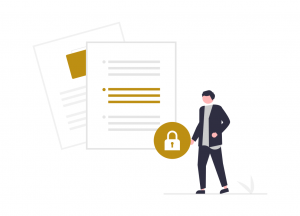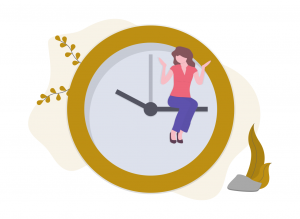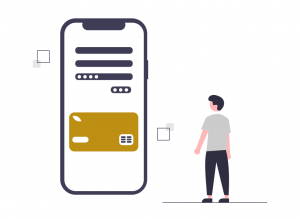Despite the pandemic issue, home prices continue to arise while mortgage rates hit a new low record! For the first time in 50 years, mortgage rates reached under 30%. Seems like an attractive refinancing opportunity for many!
But what if you have a bad credit? Are you still eligible for refinancing? DEFINITELY! There are couple of methods and special circumstances that could help you possibly refinance even with a low credit score.
How Does Mortgage Refinancing Work?
Refinancing happens when you take out an existing loan and replace it with new one. You can keep your current house, but you will have a new mortgage that comes with new terms.
Refinance applies the same procedures of getting a new house: loan application, underwriting, home appraisal, and closing. Here are some of the reasons why you might want to refinance your mortgage loan.
- Eliminate private mortgage insurance (PMI)
- Move from an adjustable rate to a fixed rate
- You could qualify for a lower interest rate
- Change loan terms: You may increase your loan terms to lower monthly payment or shorten the term of your mortgage to pay it off sooner.
- Take equity of your home

Options For Refinancing A Mortgage
The key factor in refinancing is your credit score. While there are certain lenders who cannot provide you loan, there are few other options you could try to refinance even with a less ideal credit score.
1.) Consult Your Current Lender
It is wise to consult your lender first and explain your current situation to find out about your options. You may ask your lender what types of loan or program they offer specifically for the homeowners with bad credit.
Not all lenders offer the same types of loan or program. Feel free to shop around and reach out to other lenders. One lender could be a better fit for your situation.
2.) Apply With A Non-occupying Co-client
Applying for a refinance with a non-occupying co-client is also an option. Non-occupying co-client refers to someone who does not live in your home but is willing to take financial responsibility for your loan if you default.
When the lender underwrites your loan, he will consider both of your credit scores, income, and assets. The co-client may also need to be on the title of your home.
You still need to qualify from a minimum credit score perspective despite having a co-client who can help you lower your DTI. The credit scores that count is the lowest median credit score between you and the co-client.
While applying with a co-client can give you a boost, there will be some strings attached. The co-client can be pursued if you fail to settle your loan. See to it that you can handle your monthly payments before applying for a refinance. Make sure that you establish a good relationship with your co-client.
3.) Get An FHA Streamline Refinance
FHA streamline refinance helps lower your monthly payment or change the loan term. This program applies to borrowers with existing FHA loan, whether they have an equity built in their home.
FHA streamline refinance is applicable even without the usual credit check and income verification. There are also instances where you can get an FHA streamline refinance without an appraisal.
Aside from the FHA loan, below are the guidelines to qualify:
- Refinancing a conventional loan into an FHA loan or vice versa means you should undergo the usual credit check requirement.
- Check the tangible net benefit after refinancing. It could be a lower monthly payment or a lower-interest rate.
- Monthly premium cannot exceed $50. You will need to conform to the full refinance standards when you exceeded $50.
- Only one 30-day late payment in the last year and none in the past 6 months.
GET STARTED WITH AN FHA LOAN.
NO CREDIT CHECK REQUIRED!
"*" indicates required fields
4.) See Qualification For VA IRRRL
VA IRRRL could be a good option if you have an existing VA loan. VA IRRRL, also known as VA Streamline Refinance, allows you to lower monthly payments with the help of a lower interest rate or longer loan term.
This is open to anyone with a VA loan who can meet the qualifications. It often involves less paperwork than a traditional refinance. Thus, you can take advantage of lower interest rates even with less-than-perfect credit.
5.) Consider A Cash-out Refinance
Cash-out refinance allows you to accomplish other financial goals. Funds can be used to pay off high interest debt, home improvement project, and more.
Refinance can absolutely help you especially if you have built enough equity in your home. You may consider the cash-out refinance and use it to take care of other financial obligations.
Take note than when refinancing without credit check, your rate or term can only be the ones refinanced. A minimum credit score of at least 620 may be needed if you want to take a cash-out refinance. This may be a moderate credit option for refinancing however, it can help you improve your credit score by using the money to pay down other debts.
Tips For Improving Credit Score Before Refinancing

Secured Credit Card

Pay Bills On Time

Lower Credit Utilization
Secured Credit Card
A secured card allows you to build credit when you are not qualified for a loan or traditional credit card. You may leave a deposit with your lender when acquiring secured card. It will then be your line of credit.
Secured cards offer a fantastic way in building credit. Just remember to make payments on time. Missed or late payments will also hurt your score like an unsecured credit card. Secured credit card can be used for purchased and pay them off with interest every month. Then, the lender reports your payments to the credit reporting bureaus. Your lender can keep your initial deposit in case you don’t pay your bills.
Pay Bills On Time
The most important factor when building your credit score comes from the 35% of your FICO Score, which is your payment history. Build a history of on-time payments for each of your accounts.
Enable automatic bill pay if your accounts offer it. This way, you can schedule a date for your minimum payments. Your account holders will automatically deduct the amount you owe.
Lower Credit Utilization
Credit utilization pertains to the percentage of the total available credit you are using every month.
For instance, you have a credit card with a limit of $10,000 and you put $5,000 worth of monthly expenses. Your utilization ratio will be 50%. However, if you used up 100% of your credit, you will be notified that you have maxed out your credit.
Utilizing most of your available credit shows lenders that you might have nothing in your savings. Lenders prefer to not work with the borrowers who have high credit utilization ratios. Bring more cash with you, settle your charges immediately, and wisely budget your money to lower your utilization.
Having a good credit score is one of the important elements of financial health. You are able to raise a bad credit score fairly quickly even with just small actions. For instance, pay bills on time or lower the credit utilization. Determine the status of your credit score and credit history before refinancing to avoid any surprises down the line.
Take a non-occupying co-client with you and your lender can consider both your scores. You may opt for a streamline VA or streamline FHA refinance too. It allows you to refinance your rate or term without a credit check.


